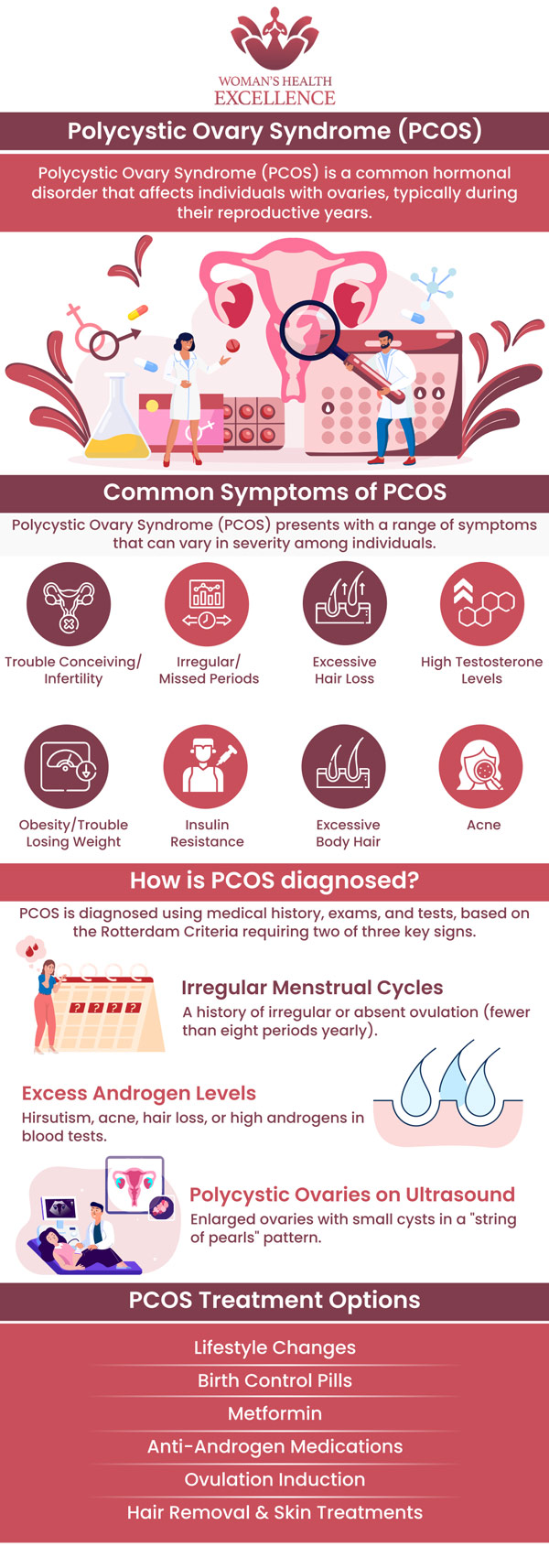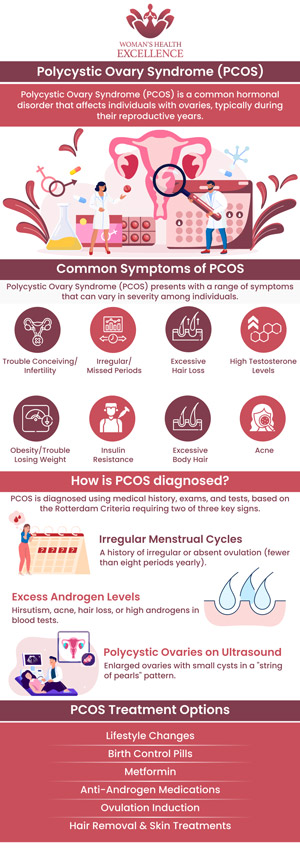What Does a PCOD Specialist Do?
PCOD is a condition in which the ovaries generate a large number of immature or partially mature eggs mainly caused of a bad lifestyle, obesity, stress, and hormonal imbalance. If you are suffering from PCOD, talk to our specialist today. Dr. Prema and her team can help you manage symptoms of PCOD. For more information, please contact us or book an appointment online today. We have convenient locations to serve you in Arcadia, and Glendale, CA.




Table of Contents:
What is PCOD?
What is the cause of PCOD?
What are the symptoms of PCOD?
What are the complications associated with PCOD?
How is PCOD diagnosed?
OB-GYN & Incontinence Center in Arcadia, CA can help diagnose and treat polycystic ovary disease (PCOD). Pelvic pain and bladder pain are areas that we specialize in. We address each patient’s concern individually, with consideration to giving comprehensive treatments. We offer low-invasive high-technology effective treatment in our friendly office. The OB-Gyn & Incontinence Center staff offers friendly, personalized, and timely care.
Polycystic ovary disease (PCOD) is a hormonal disorder in women who are of reproductive age. Women with PCOD may have prolonged menstruation periods or irregular menstrual bleeding or they may be infrequent. They also experience excess male hormone levels. The ovaries might develop small collections of fluid and fail to release eggs regularly. The cause of this disease is not known. Early diagnosis and treatment might reduce the risk of long-term complications.
The precise cause of PCOD is not known. There are factors that are believed to play a part in it being present. Factors that may play a role are:
Insulin, the hormone that is produced in the pancreas, allows the body to use sugar. If insulin is produced in excess, the body can become resistant to it and the blood sugar levels will rise. This may cause an increase in the production of androgen, which creates difficulty with ovulation.
Research shows that women with PCOD have a kind of low-grade inflammation that stimulates the polycystic ovaries to produce androgens. This can lead to problems with the blood vessels and heart.
There can be a genetic link to PCOD, which is yet to be determined.
Excessive levels of androgen in the body seem to be the leading cause of PCOD.
Symptoms of PCOD will often develop about the time of the first menstrual cycle. It is possible for PCOD to develop later in life, usually in response to a large weight gain. Symptoms can vary with each person and at least two of the following symptoms need to be combined to be diagnosed with PCOD:
Irregular periods, due to infrequency, prolonged or irregular menstrual cycles are the most common sign of PCOD.
Increased levels of androgen, a male hormone, may result in physical signs. These signs can be excess body hair or facial hair. Sometimes acne or male pattern baldness are symptoms.
The ovaries may become enlarged and have follicles that surround the eggs. This can cause the ovaries to malfunction.
These symptoms are generally more severe if you are obese.
Complications of PCOD are the reason that this needs to be diagnosed and treated. The complications include:
• Infertility
• Miscarriage or premature birth
• Gestational diabetes or high blood pressure related to pregnancy
• Severe liver inflammation
• A metabolic syndrome where a number of conditions come together to increase the risk of heart disease
• Sleep apnea
• Type 2 diabetes or pre-diabetes
• Depression, anxiety, and eating disorders
• Endometrial cancer
• Abnormal uterine bleeding
• Obesity is often associated with PCOD and can make the complications worse.
There is no way to diagnose PCOD definitely. The doctor will start with a discussion about your medical history. Menstrual cycles and weight changes will be a part of that discussion. A physical exam to check for signs of acne, excess hair growth, and insulin resistance will be done.
The doctor might recommend a pelvic exam to look for irregularities in the reproductive organs. Blood tests may be done to check hormone levels, especially androgen levels and blood sugars. An ultrasound will likely be done to check the appearance of the ovaries. You may also receive a transvaginal ultrasound. If you are diagnosed with PCOD, your doctor may also recommend additional testing to be done. Blood pressure, cholesterol, and triglycerides will be checked periodically to keep track of the condition. Screening for sleep apnea, depression, and anxiety will also be done. For more information, call or book an appointment online with our Gynecology/Urogynecology Doctor, or visit our clinic. We have convenient locations to serve you. We look forward to serving you! We serve patients from Arcadia CA, Glendale CA, Monrovia CA, Pasadena CA, Los Angeles CA, Burbank CA and surrounding areas.


Additional Services You May Need
▸ Urogynecology
▸ Minimally Invasive Gynecology
▸ Monalisa & Medical Aesthetics
▸ Bioidentical Hormone Replacement Therapy
▸ Urinary Incontinence
▸ Pelvic Organ Prolapse
▸ Painful Bladder
▸ Urinary Tract Infection
▸ Genitourinary Syndrome of Menopause
▸ Female Sexual Dysfunction
▸ Urinary Retention
▸ Vaginal Laxity & Prolapse
▸ Postpartum Pelvic Floor Problems
▸ PCOD
▸ Bladder Prolapse Repair
▸ Urgent PC
▸ Fibroids
▸ Excessive Bleeding
▸ Pelvic Pain
▸ Birth Control & IUD
▸ Vaginal & Pelvic Infection
▸ Monalisa Touch
▸ STD
▸ TempsureVitalia
▸ Biote Pellet Therapy
▸ Topical BHRT
▸ Flexsure
▸ Rectal Prolapse Repair
▸ Tempsure ENVI
▸ Minimally Invasive Pelvic Surgery for Incontinence



